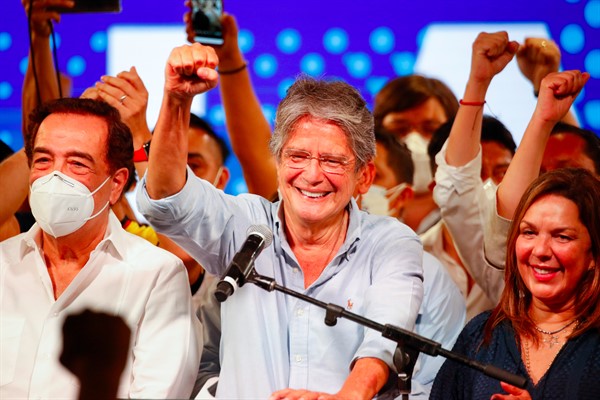Even in the throes of the coronavirus pandemic and a mismanaged economic austerity package, former President Rafael Correa’s bitter legacy of corruption and authoritarianism outweighed the promise of a return to the lavish social spending of the left-wing populist’s time in power.
That appears to be the takeaway from the surprise victory of conservative banker Guillermo Lasso, 65, in Ecuador’s hard-fought presidential runoff election on April 11. With the Andean nation’s economic model at stake—not to mention its free press and arguably its democracy—Lasso overturned a 13-point loss in the February first round to defeat Correa’s protégé, Andres Arauz, 52.4 percent to 47.6 percent.
That points to a deepening—rather than a reversal—of the pro-business reforms begun by outgoing President Lenin Moreno. Ecuador as a society may also, perhaps, have an opportunity to come together in a way that would have been improbable had Arauz won. Although the 36-year-old economist sought to transmit a unifying message on the campaign trail, it was frequently overshadowed by Correa’s rageful social media outbursts—delivered from his exile in Belgium, his wife’s homeland—against his critics, vilifying individual journalists by name and claiming that there will not be “true democracy” in Latin America until the “media question” is resolved.

